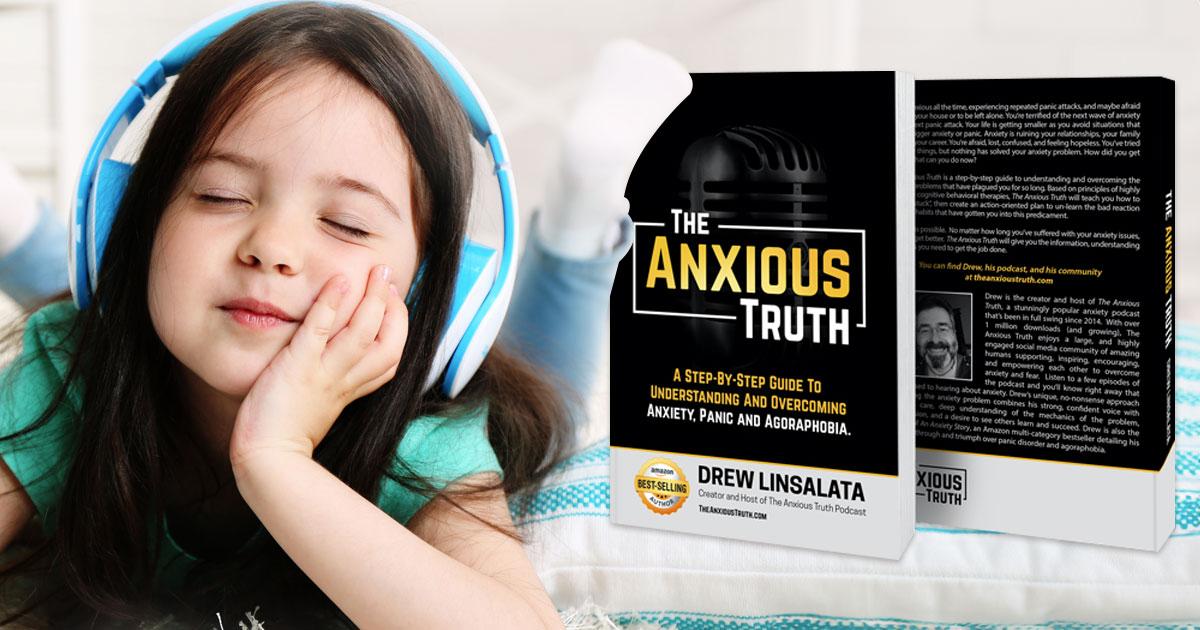6 Good Podcasts to Listen to for Teens & Tweens with Anxiety

Finding effective ways to manage anxiety can be a challenge for teens and tweens, especially given the pressures and stressors of adolescence. For young people dealing with anxiety, listening to podcasts can be a valuable tool. The best podcasts for teenage anxiety often offer a mix of relaxation techniques, comforting stories, and expert advice tailored to their unique experiences.
How listening to podcasts can help teens and tweens cope with anxiety
Podcasts offer a comforting and easy way for teens and tweens to handle anxiety. They provide many benefits, such as:
- Accessible Comfort: Podcasts can be accessed anytime and anywhere, giving young listeners comfort and advice whenever needed. They can use their phones or other devices to listen whether they’re at home, at school, or on the go.
- Expert Advice: Many podcasts feature mental health professionals who share practical tips and techniques for managing anxiety. These experts offer useful insights on coping strategies, relaxation methods, and ways to deal with stress.
- Distraction and Engagement: Engaging content can serve as a healthy distraction from anxious thoughts, helping shift focus and bring relief. Interesting stories, interviews, and discussions can keep their minds occupied and away from worries.
- Personal Connection: Hearing personal stories and experiences from others can help teens and tweens feel less alone in their struggles. Hearing that others face similar struggles and learning about their coping methods can offer a sense of support and hope.
- Educational Insights: Certain podcasts provide valuable information about anxiety and mental health, helping listeners grasp their experiences better. This knowledge can enable them to take control of their mental well-being and seek support when needed.
- Supportive Community: Numerous podcasts create a supportive environment for listeners. They promote sharing personal stories, seeking advice, and engaging with others facing similar challenges. This feeling of community can offer comfort and encouragement.
- Relaxation Techniques: Certain podcasts focus on relaxation and mindfulness exercises. These guided practices can help teens and tweens learn to calm their minds and bodies, reducing the physical symptoms of anxiety.
What good podcasts can teens and tweens with anxiety listen to?
Here are six great podcasts for teenagers and tweens dealing with anxiety, offering various approaches to coping and managing their feelings:
1. The Anxious Truth
The Anxious Truth is a top choice among mental health podcasts for teens. Hosted by Drew Linsalata, this podcast combines clinical expertise with personal experience. Linsalata, a former sufferer of panic disorder and agoraphobia, shares practical advice on managing anxiety and panic attacks. The podcast also explores topics such as the impact of doomscrolling and how to deconstruct feelings of powerlessness. This show can help teens understand their anxiety better and find actionable strategies for relief.
Starter episode: “Do I Have to Stop Fearing Anxiety to Fully Accept It?”
2. The Mental Illness Happy Hour
Comedian Paul Gilmartin hosts The Mental Illness Happy Hour, which provides an honest and empathetic exploration of mental health. The podcast includes interviews with mental health experts and public figures who share their experiences with anxiety and other mental health issues. It also features anonymous listener submissions, fostering a sense of community and empathy. This podcast can help teens and tweens feel less alone and more connected with others facing similar challenges.
Starter episode: “Raised to Present Well — Dr. Kate Truitt”
3. Your Anxiety Toolkit
Your Anxiety Toolkit offers practical tools and techniques for handling anxiety, OCD, and depression. Hosted by Kimberley Quinlan, a licensed marriage and family therapist, the podcast delivers evidence-based advice and mindfulness practices. Its supportive and reassuring tone makes it a helpful resource for teens seeking effective ways to manage their anxiety.
Starter episode: “20 Phrases to Use When You Are Anxious”
4. The Happiness Lab with Dr. Laurie Santos
The Happiness Lab with Dr. Laurie Santos delves into positive psychology and offers insights on improving happiness and well-being. Dr. Santos, a Yale professor, delves into scientific research on happiness and provides practical advice for incorporating positive psychology into daily life. For teens struggling with anxiety, this podcast offers uplifting content and strategies for building resilience and improving mental health.
Starter episode: “Stepping Off the Path of Anxiety”
5. How to Keep Time
The podcast How to Keep Time from The Atlantic questions today’s emphasis on productivity and invites listeners to rethink their views on time.
Hosted by Becca Rashid and Ian Bogost, the show explores why rest is essential and how to achieve a balanced life. Although not exclusively focused on anxiety, this podcast can help teens and tweens understand the importance of rest and manage stress related to their busy lives.
Starter episode: “How to Rest”
6. All Creatures
All Creatures is a science podcast that offers a comforting distraction through stories about animals and conservation. Each episode features deep dives into different creatures and their environments, providing a relaxing and engaging escape from daily anxieties. For teens who enjoy learning about animals and nature, this podcast can offer both entertainment and a sense of calm.
Starter episode: “How Animals Help Us Overcome Trauma”
What else can you do to help your teen or tweens with anxiety?
Besides listening to podcasts, there are several ways to support teens and tweens dealing with anxiety:
- Encourage Open Communication: Assure them that they can discuss their feelings and concerns with you openly, without worrying about being judged. Listening and demonstrating empathy can strengthen trust and create a safe environment.
- Encourage Healthy Routines: Support consistent physical activity, a nutritious diet, and enough sleep. Regular exercise boosts mood, a well-balanced diet benefits both body and mind, and sufficient sleep is essential for mental health.
- Consider Professional Help: If their anxiety is too much for them to handle, seeing a mental health professional can be very helpful. Therapists can offer coping strategies, counseling, and sometimes medication if needed.
- Use Relaxation Methods: Introduce them to basic relaxation practices such as deep breathing, mindfulness, or meditation. These techniques can help soothe their mind and alleviate anxiety symptoms.
- Create a Daily Routine: Having a regular daily schedule provides stability and predictability, which can be reassuring. Sticking to a structured plan for school, homework, and free time helps them feel more organized and in control.
- Reduce Screen Time: Suggest taking breaks from screens, particularly before bedtime, to lower stress levels and improve sleep quality. Excessive use of screens, especially social media, can heighten anxiety.
- Encourage Participation in Hobbies: Inspire them to take part in activities or hobbies they enjoy. Engaging in creative or physical activities can serve as a positive way to channel their energy and emotions.
- Model Positive Behavior: Show them healthy ways to deal with stress and anxiety through your actions. Demonstrating calmness and effective stress management techniques can inspire them to adopt similar habits.
- Educate Yourself: Learn about anxiety and its effects on teens and tweens. Understanding their experiences can enhance your ability to offer supportive and empathetic assistance.
These good podcasts can help with anxiety
Listening to helpful podcasts can support teens and tweens dealing with anxiety. The six podcasts mentioned in this article offer expert advice, personal stories, and engaging content. These podcasts provide comfort and practical tips for managing anxiety. Including these podcasts as part of a broader strategy with healthy habits and professional help can assist young people in managing their anxiety and finding relief.

